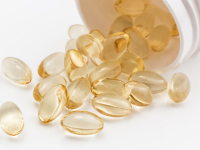
J. David Legan, PhD
Director of Science
David earned his Ph.D. in Food Technology from the University of Reading in the UK by modeling the ecology of mixed microbial populations, and then moved to Campden BRI in a variety of microbiological food safety research and client service roles. During that time, he was project lead for the Bacillus component of the UK’s pathogen modeling program. He moved again to Nabisco Research in New Jersey where he ran the corporate microbiology lab and developed a program of preservation technology development and microbial modeling. After the Kraft Foods acquisition, he moved to Chicago to work on Food Safety and Preservation research, and through modeling and validation studies:
- Optimized Oscar Mayer’s use of lactate and diacetate and their naturally cultured alternatives as Listeria-control agents in Ready to Eat meats
- Specified process conditions central to Oscar Mayer’s commercial launch of High Pressure Pasteurization of naturally cured RTE meats
David had responsibility for the Kraft cultures R&D group, developed a partnership to explore microwave sterilization leading to several patents, and led a program that developed an internal proprietary natural antimicrobial commercialized in several Kraft products. Technologies from his group supported approximately $4 billion in annual sales.
After years as a microbiology "client", he is now back in the "provider" role as Director of Science at Eurofins Microbiology Laboratories, Inc., by way of the Covance Food Solutions group based in Madison, WI, which he joined in 2016. In this role, he ensures appropriate method validation, explores new testing technologies, and fields multiple complicated food microbiology questions.
Products that his team has evaluated or developed and launched include:
- The 3M MDS platform in the Madison microbiology laboratory
- Flow cytometry for enumeration of probiotics
- Strain-level confirmation of probiotic identification using the polymerase chain reaction (PCR)
- Next-generation sequencing using the Oxford Nanopore Technologies GridION sequencing platform for microbial identification and microbiome analysis
Below are resources from David:
The rapid rise of mocktails and alcohol alternatives signals a deeper shift in consumer behavior. As the category matures, brands are discovering that removing alcohol is only the beginning.
In the dietary supplement and ingredient industry, protecting consumer health and meeting regulatory expectations are nonnegotiable. One critical aspect of quality control is residual solvent testing. Residual solvents, volatile chemicals used during manufacturing, can remain in products if not properly removed.
When evaluating fiber testing approaches, it’s important to review how results differ across sample matrices tested by both the new and previous methods. More laboratories are implementing the Rapid Integrated Dietary Fiber Methods - AOAC Official Methods 2017.16 and 2022.01. The AOAC 2017.16 method measures the insoluble fiber fraction (IDF) and soluble fiber fraction that precipitates in 78% ethanol (SDFP) together, and separately measures the soluble dietary fiber not precipitated in 78% ethanol (SDFS) by HPLC.
The team at Eurofins Nutrition Analysis Center is proud to announce the launch of its new "Healthy" Claim Compliance Service designed to help food manufacturers navigate the FDA's updated criteria for the use of the term "Healthy" on food labels.
In this blog, Dan Brouman traces MAHA’s path since December 2024, when the MAHA Caucus launched in Congress. Brouman also discusses MAHA’s future and its effects on food policy.
Selecting the right microbiological testing method isn’t just about speed or cost. It’s about risk management, product integrity, and regulatory compliance. Click to read about the strengths and limitations of different methodologies essential to avoid false negatives, regulatory citations, or costly recalls.
How automated and rapid is your testing process? Review our checklist to see if your operation’s processes make you a good fit for automation through managed NIR.
In the world of dietary supplements and food testing, unexpected results like failed specifications, out-of-spec (OOS) results, or surprising contaminant detections can be unsettling, but they’re not uncommon. Here’s how to navigate the process when results don’t align with expectations.
When it comes to refrigerated and frozen foods, shelf-life testing isn’t just about timelines, it’s about protecting your brand, your label claims, and your consumer’s experience. In this Ask the Expert feature, Sam Wiesenfeld shares insights into the most common questions clients face when designing shelf-life testing protocols for refrigerated and frozen foods.
When it comes to dietary supplement testing, one seemingly small detail can have outsized consequences: specifying the correct vitamin form. Understanding and communicating the exact vitamin form in your product is not just a technical necessity, it’s a strategic imperative in ensuring accurate results, timely reporting, and regulatory compliance.












